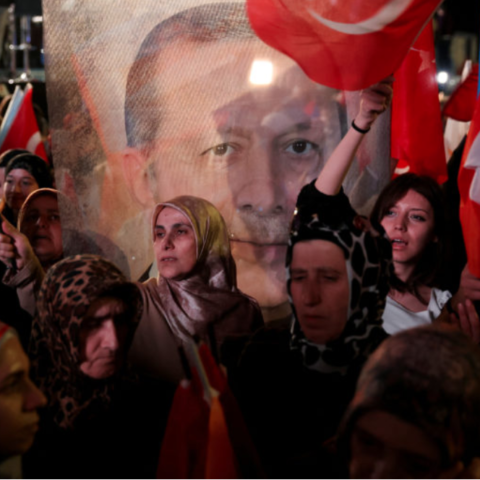By: Shuchi Goyal

Earlier this week, the high court of China rejected disgraced politician Bo Xilai’s appeal on his sentence of life-imprisonment after he was found guilty last month of various crimes, including bribery and embezzlement. The decision marked what China surely hopes is the final chapter in an ugly and convoluted tale of rampant government corruption. Riddled with plot twists such as a runaway police chief, an accusation against Bo’s wife of murder by cyanide, the subsequent attempted cover-up by Bo, and the eventual but inevitable crumble of his political career, the story of Bo Xilai’s fall from power over the last eighteen months sounds like the stuff of a political drama one might see on primetime television.
In China, Bo is part of a group of men called “princelings,” the descendants of the elite Eight Elders credited with leading Chinese political reform in the 1980s, who carry a large amount of influence over national politics. Known for his charismatic personality, he led the Chongqing faction of the Communist Party, which advocated socialism and the reinstatement of certain old Maoist principles, opposing China’s recent moves toward capitalism. In addition to being a powerful political figure, the media often portrayed him and his family as silver-spoon-socialites, scrutinizing their lavish lifestyles. The established setting was so perfect that it could have foreshadowed nothing other than trouble.
And so trouble came, when internal squabbles among the Chongqing party led its vice-mayor Wang Lijun to abruptly flee to the U.S. Consulate in Chengdu in February last year and present evidence of corruption within Bo’s family. This launched an investigation against Bo’s wife, Gu Kailai, who was accused of poisoning British businessman Neil Heywood after a financial deal between the two went awry four months previously. In August of that year, the Chinese high court found Gu guilty after she confessed to the crime and handed her a suspended death sentence. Bo, meanwhile, was accused of using his power to impede the investigation, thereby obstructing justice, and by March 2012, Chongqing party members had voted to strip him of every political title he held. He stood trial earlier this year on charges of abuse of power, corruption, and bribery and last month was sentenced to life in prison, which he attempted and failed to appeal.
Headlines regarding Bo’s scandal use combinations of the same few buzzwords – “Corruption! Secrets! Lies! Murder!”- that are often used to market political drama series on television, a genre that has experienced a resurgence during the last two years. Details of the whole affair eerily resemble the plots of these shows. In fact, there arises a chicken-and-egg type of dilemma: is this just art imitating life, or is life imitating art? And if it is the latter, does our patronage of fictional political dramas inadvertently help create a mirroring reality?
The prominence of political dramas on television is relatively recent, and it began in a fairly tame manner. From 1999 to 2006, Aaron Sorkin’s “The West Wing” focused on the challenges of maintaining a united government under the administration of the fundamentally virtuous President Josiah Bartlet. However, the global economic downturn in 2007 made people more suspicious of their political leaders following allegations of financial mismanagement and discovery of questionable dealings between large companies and national governments. This growing wariness led to the creation of political satire shows such as “The Office,” “Parks and Recreation,” and “30 Rock,” which garnered the most critical and popular acclaim in America; for the next few years, comedy persevered over drama.
Then, in April 2012, ABC began airing a new political drama seductively named “Scandal” about a crisis management worker who protects the secrets of the White House from public while exploring the relationships among members of the executive staff. Ten months later, Netflix debuted its own critically-acclaimed series called “House of Cards,” which follows a senator seeking revenge against his political enemies. In both programs, powerful politicians are tangled in dramatic webs of fraud, murder, deception, and, who could forget, extramarital affairs.
The parallels are startling and the public seems equally enthralled by reality and fiction – but maybe this is not so surprising after all. Politicians work hard to keep their skeletons hidden in a closet, so to see them tumbling out one after another is a rare occurrence. This phenomenon applies particularly to China, where the government is naturally secretive and mass media coverage and publicity preceding a trial of a figure as significant as Bo is virtually unheard of. The question, then, is as follows: do events like what recently happened in China and the overwhelming public response provide writers with inspiration for television shows? Or do the media encourage, or even glorify, the very deceptive culture associated with today’s politics that everyone seems to love to despise?
The answer, as always with regards to politics, is complicated. On the one hand, it is extremely unlikely that an American television show had anything to do with a powerful Chinese businesswoman resorting to the most desperate of acts to protect her image, especially since Gu murdered Heyman months before either “Scandal” or “House of Cards” ever started airing. On the other hand, programs with similar themes have existed all around the world for quite some time (“House of Cards” is actually a remake of a 1990 British miniseries), and one could argue that they have a large impact on the way people expect politicians to behave. These expectations in turn embolden those same politicians to believe that such behavior is acceptable given their status. Television shows, meanwhile, most likely draw their inspiration from either small-scale scandals involving mayors and governors such as the Mark Sanford scandal in 2009, or from large scale cover-ups such as the Watergate Scandal or the persecution of political enemies in some autocracies.
Then again, perhaps the heat of politics naturally leads to melodrama, with media adaptations simply as an unavoidable side effect. Greek mythology is filled with histrionic expressions of avarice and envy in the never-ending quests for power by gods and men. During her reign as pharaoh of Egypt, Cleopatra murdered her brother (who was also her husband), had an affair with Julius Caesar, and married Marc Antony before dying in a suicide pact. Family members of the English monarchy frequently tried to overthrow each other by bloody coups and discreet poisoning, with varying degrees of success, until the seventeenth century. While lust for power can drive rulers to act sinisterly, today’s masses consider such actions to be antiquated and unacceptable. Yet, this behavior continues to appear again and again, both in media and in real life.
The trial of Bo Xilai is an admittedly an extreme example of the increasing theatricality with which political reality has begun to reflect political art. However, while political drama might make for good television, it does not bode nearly as well in reality when it disrupts the activity of regular government procedures as well as the lives of citizens. It may be time to take a second look beyond the glamor with which secrecy is portrayed on television and examine what we really want from our politicians.

